
Until last Wednesday, an explosive 161-page document prepared by four judges was gathering dust in the office of Nalsar Hyderabad vice chancellor (VC) Veer Singh for nearly four months. Few, if any, had read it and most faculty and students claimed they were unaware even of its existence or any details.
The story of that report is Nalsar’s alone. But this is also a story of academic power struggles, law school management and students caught in between, that will have near-universal parallels in many Indian law schools.
Unreported judgment
On 7 March 2011, former Supreme Court justice Syed Shah Mohammed Quadri, with Andhra Pradesh (AP) high court justices VVS Rao and Ramesh Ranganathan, and district and sessions judge S Ravi Kumar, first met under section 7(3) of the Nalsar Act 1998 to enquire into the administration and finances of the university.
The judges met a total of 26 times between April and August 2011. They inspected the campus, anonymously interviewed each member of faculty on 11 occasions, listened to students on three occasions, spoke to non-teaching staff, pored over the books of accounts on 17 different days, and took written suggestions and representations.
The four sitting and former judges finally finished their report on 12 September 2011 and presented it to Nalsar chancellor and AP Chief Justice Nissar Ahmed Kakru. Kakru’s tenure ended in October 2011, and he was replaced by the current chancellor and AP Chief Justice Madan B Lokur.
So far, none of its recommendations have been implemented, which was surprising considering many of its charges.
The right information
On 12 January 2012, Legally India filed a request for the report under the Right to Information (RTI) Act via email and courier.
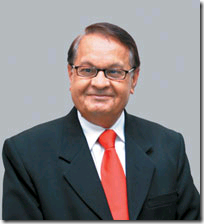
When Legally India had contacted Veer Singh nearly three weeks ago, he declined to disclose the contents of the report. “That report has not been made public,” he said. “Nalsar bodies will decide when to make it public”.
“Every report is an internal report,” said Veer Singh. “It shall be implemented subsequent to the meeting of academic council, general council, executive council which might be held in February. I cannot do things on my own. I can only give you the report once all the councils approve of it.”
However, one day after the Times of India published an apparently leaked copy of the report last Wednesday, which “state auditors” had stumbled upon according to the paper, Legally India finally received and published a partial response to its RTI request from Nalsar.
By Friday, Nalsar’s public information officers had sent a full copy of the report by email and courier.
Nalsar uncut
The judges pull few, if any, punches, despite their deceptively humdrum aim of helping “Nalsar attain academic excellence which is, indeed, the main objective of establishing this University”.
The analysis of accounts is thorough, running from pages 60 to 125 of the report. Since its inception in 1999, Nalsar received more than Rs 50 crore of grants from the AP government, but accounts were “poor and shoddy” between 2001 and 2007, requiring crores of Rupees of adjustments in a subsequent accounting clean-up.
As long ago as the 2000-2001 financial year, shortly after Nalsar’s founding, construction and other contracts worth several crores were doled out to highest bidders in closed tenders or other circumstances that the judges criticised harshly (pages 69 to 76). Judges found similar such irregularities in the auditor general reports up until 2008, and inadequate accounting related to the the Common Law Admissions Test (CLAT), conducted by Nalsar in 2009, which netted application fees of Rs 1.78 crore and several questionable honorariums (page 110).
Expenses for “private trips” taken by the VCs and others that were funded by Nalsar should be recovered, where they had not been sanctioned by the appropriate channels as “duty leave”.
And while stopping short of alleging outright that Nalsar's top ranking in magazines such as India Today was a direct result of taking out advertisements or “impact features” costing between Rs 3.5 lakh and Rs 8.5 lakh each, the judges do slam the expenditure as “needless and wasteful” and the correlation as “curious”, particularly since other top national law schools did not take out ads (page 88-89).
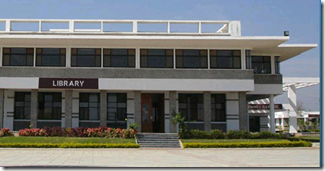
The minutiae of the report make for dramatic reading material that is rich in detail. Exam papers were stolen and sold after students bribed a driver for copies of room keys. Favouritism was rife on campus between the VC and certain staff and students. Academic performance gold medals were awarded to students, bending the proscribed rules.
The judges add there is an “urgent need to improve the quality of the faculty”, and the library opening hours should be extended beyond current times, in line with some other colleges.
Other interesting titbits include Nalsar’s moot court committee, for example, which had a budget of Rs 6.6 lakh in 2006-07, increasing to Rs 12.4 lakh in 2010-11 (page 130), but students complained about favouritism and a lack of transparency in moot team selections.
The report also touches on the more mundane and (mostly) harmless. Students apparently cribbed to the judges about scorpions, snakes and dangerous insects on and around the campus in Shameerpet (although more seriously, the lack of available antivenom and appropriate medical facilities was noted by the judges).
A culture novel
But most of the detail - and there is far more than there is space to list here - is merely symptomatic of something far more serious: the fundamental problem at Nalsar appears to be one of culture.
“The present administrative structure, which is not built on any discernible pattern or principle, is grossly inadequate to cater to the future needs of the University,” summarise the judges. “It is imperative, therefore, that issues of governance are addressed at the earliest.”
The judges find that decision-making power was “disproportionately concentrated” with the VC's office. Safeguards “against abuse of discretionary power” by Nalsar management were a “matter of urgency”, concluded the judges.
Only this could prevent wasting of “scarce financial resources”, dividing faculty into factions and a prevailing “atmosphere of uncertainty” on campus.
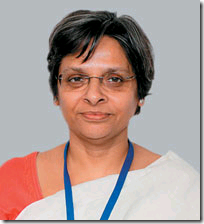
In December of last year the Times of India reported that Prof Amita Dhanda, who happens to be a respected academic authority on sexual harassment laws, alleged she received an email containing sexual innuendo from Veer Singh. He denied the allegations, stating that Dhanda had “misinterpreted the contents”.
Neither would directly comment on the dispute when contacted by Legally India.
“He does not have a very refined manner of speaking”, commented an ex-student about Veer Singh’s communication.
Chalk and cheese
It is hard to imagine colleagues more different than Dhanda and Veer Singh.
Veer Singh is a no-nonsense, ex-army man with an often abrasive manner, according to students and faculty; Dhanda is a bookish but ambitious academic through and through. Both split opinions and have their fair share of fans, allies and enemies within the faculty and the student body.
“I know him for more than 35 years and he is a person of integrity, highly committed academician, outrightly honest, speaks without mincing words. That is his character,” says Professor Amar Singh, now professor at NLU Delhi.
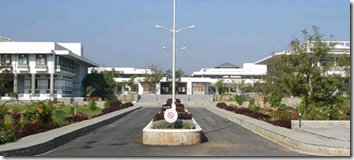
Another contradicts this: “There is absolutely no love lost between [Veer Singh] and the students.”
On Dhanda there is contrast too.
Many students and faculty praise her highly, both as a person and as an academic. “Amita Dhanda is a great faculty,” says one student. “A lot of my classmates opted for her courses.” Another adds: “Dhanda is more of the academic who sticks to big thoughts like disability studies. She is in her own world.”
Others are less complimentary. “She is a dictatorial person who tries to maintain hegemony over senior fellows,” alleges one former Nalsar faculty member. Another adds that “she can be very dominating”, even having picked fights with Veer’s predecessor Ranbir Singh, through her “natural instinct to create controversy”.
One source narrates an incident where one faculty member had complained to Veer Singh about Dhanda “demanding” to take the faculty’s lecture hour for her own course’s student presentations.
Veer Singh allegedly followed up on the complaint by barging in on Dhanda in the middle of her classroom session.
The encounter was not cordial, if that story is true, and ended in students telling Veer Singh to apologise to Dhanda.
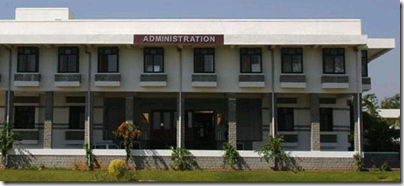
Veer Singh is very much seen as the choice and spiritual successor of Nalsar founding VC Ranbir Singh, who moved out in 2008 to start up NLU Delhi.
Dhanda had already been at Nalsar for years at that point and was a senior member of faculty, heading the centre on disability studies, the committee on sexual harassment, and was involved in other influential affairs on campus.
From the get-go, Veer Singh ran Nalsar in a way oddly befitting his background, character and the institutional structure.
“Unlike a military academy attempts,” remark the judges on page 126 of the report, “to enforce strict discipline, of a similar kind, on students in a residential University is not warranted.”
They write about complaints from both faculty and students that “the power to make decisions is disproportionately concentrated in the office of the Vice-Chancellor” (page 8), and about a “complete lack of involvement of faculty in institutional management”.
Management theorists
As such, Veer Singh’s management style is not vastly different from Ranbir Singh’s. Both believe in strong, top-down leadership that leaves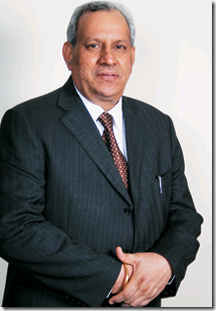
(“What’ll you do by viewing a corpse?” Veer Singh allegedly said to students who wanted to pay their last respects to Nalsar student Mahesh Gopan who drowned in a pool in June 2011. Preliminary autopsy reports found no alcohol in the student’s body, but according to page 33 of the judges’ report, Veer Singh nevertheless told Gopan’s friends: “If your batch-mate decides to drink at 16:30 hours and then leaps into a well, what am I to do? You all killed him, why should I give you a day off?”)
On the flipside, running a law school is not an easy job and there are enough examples of educational institutions run into the ground by ineffective, feeble or incompetent leaders. Veer and Ranbir Singh are neither, and even the latter’s critics will describe him as a world-class institution builder and administrator.
Especially if you enjoy good relations, both Singhs are potential dream VCs. One student tells Legally India: “Ranbir Singh has helped me a lot with the organization of events; I don’t think things would have been that smooth had any other VC been there. Ranbir Singh was exceptionally cooperative.”
“Veer Singh has done a great job”, he adds.
Ranbir Singh declined to comment on Friday when contacted.
Power sharing
Dhanda was elevated to the post of dean of academic affairs around the first half of 2011, although sources disagree on whether this was a direct consequence of the judicial inquiry. “A pressing need was felt to strengthen academic standards and restructure academics,” one faculty member tells Legally India. “It was created with the approval of the academic council.”
“Her post was created because a lot of faculty was moving out,” claims another faculty member, while one professor talks about an express resolution by the Nalsar council to appoint all faculty members in rotation to the post of dean academic affairs.
“Involvement of the faculty, by rotation, in administrative affairs would reduce concentration of authority in the office of the Vice-Chancellor,” the report notes on page 11. “The University management would do well to consult the faculty before taking policy decisions on important programmes.”
“Since [Dhanda] was the senior-most faculty member [at this time] it was felt by consensus that she is the most suitable person [for the post] and the chancellor appointed her”, says a professor. “To ensure that Dhanda has a say in academic affairs, Kakru made her a dean,” claims a faculty source, adding that the chancellor was lining up Dhanda as VC after the end of Veer Singh’s tenure.
“[Veer] Singh has a problem much more with the post than with Dhanda, in that he wants nobody else from the faculty to be involved in responsibilities of importance and wants everything to pass through him,” says one Nalsar staffer.
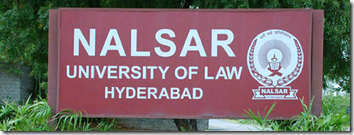
This puts Veer Singh’s interaction with Dhanda into further context.
Condemning the allegation that Dhanda’s “personal interest” got her the job, a source close to Dhanda says: “Veer Singh was present when [the post] was created. It is Veer Singh himself who had appointed Dhanda, and now he is backing out on his stand. He should stand by his decision.”
Singh told Legally India almost three weeks ago: “The post of dean academic affairs was created before this inquiry or the report took place”. He did not respond to an email seeking further comment last week.
Dhanda declined to comment and did not respond to emails when Legally India contacted her.

Most students contacted by Legally India over the past weeks claimed to be blissfully unaware of faculty tensions. This could be partly explained by Nalsarites’ reputation amongst other law colleges as nerdy, sporty and apolitical (backed up by Nalsar’s thumping two-time win of Legally India’s Mooting Premier League).
Apart from the niche all-boys-club of career or family politicians on the student bar association (SBA), most apparently don’t get too involved.
Nevertheless, the student body is now slowly galvanising. While fourth and final-year students are panicking mildly about the potential damage to Nalsar’s brand and recruitment prospects, the younger batches are more enthusiastic about taking direct action. The SBC meanwhile is caught between a rock and a hard place, having to keep up working relations with the administration while trying to react appropriately with the report’s revelations.
In the latest development, the entire elected SBA body is set to meet Veer Singh today at 11:40am. “He will make a statement as regards the revelations made by the Enquiry Committee Report on the University. He will make a statement before the 40 members of the Student Bar Council, following which he will respond to questions from the SBC,” starts an email sent to all students by a senior SBC functionary early on Saturday morning:
“We understand that the student body has a lot of questions that need to be addressed. So we request students to send in their questions to their respective representatives, which will be tabled before the VC. The minutes of the meeting will be recorded and published for the reference of the Student Body. Following the meeting, the SBC will take stock of the VC's response and decide on the future course of action.
“Given the gravity of the situation, I realise the Student Body would have preferred a meeting with all the students present. However, we believe that we will be able to facilitate a more organised and meaningful debate through a meeting with the representatives of the SBC. Further, we want this to be a participatory process, and hence request you to send in your questions to your representatives. Feel free to contact any members of the Executive with any concerns you may have.
“Please note that we see this as an opportunity to push for transparency and accountability in our future interaction with the administration, and will decide on our course of action in consultation with the Student Body- keeping the larger interests of the University in mind. While it is natural to be inclined towards acting out in response to the revelations, it is important to not resort to any actions that would worsen the situation. So I request you to bear with us through this difficult time and address your concerns through the SBC.”
This may be a difficult time and a knock for Nalsar students and everyone involved, but no one expects this to sink the institution.
In fact, in the spirit of the meticulous report by the judges, this could one day become known as Nalsar’s and Indian law schools’ finest hour in their quest for excellence.
Editor’s note: After publication of the above report, a flood of Nalsar Hyderabad alumni came out in force to support Nalsar’s dean of academic affairs Amita Dhanda via telephone and email.
After detailed conversations about their concerns, Legally India would like to set the record straight: at no point did we intend for any implication to arise about the legitimacy or otherwise of any charges of sexual harassment. While we believe that the alleged sexual harassment is a valid part of the back story by illustrating the fraught relationship between vice chancellor Veer Singh and Dhanda, putting it into the context of an institutional power struggle is all too often used as an excuse for dismissing such complaints.
We do not wish to exacerbate a situation about which not enough can be conclusively determined from a Times of India report, or to discourage anyone else for filing similar complaints in academic institutions or elsewhere. We have therefore edited the earlier version of the story in respect of a number of references to the personal dispute between Veer Singh and Dhanda, which should be settled between them according to established procedures.
Read more here:
- Download full report here (docx file, 1.04MB), quality of scan variable
- Nalsargate: Download full judicial report on gold meddles, distance learning & scorpions; Nalsarites call off protest
- Download parts of 3-judge Nalsar report slamming exam leaks, student drowning, mooting favouritism, law school rankings & more
- Nalsar VC Veer Singh & others accused of authority abuse, fudged accounts & more by judges, after LI RTI stonewalled
threads most popular
thread most upvoted
comment newest
first oldest
first
A meeting between the students and the VC should not be discussed in the public. The issue has been brought to light; now let the people sort it out.
The media should be responsible enough to know when to back off. This is not a Bollywood circus, Mr. Kian Ganz.
Will clarify the copy that it was a TOI report relied upon.
I don't want to vouch for the accuracy of the TOI story, but a couple of points:
1. We tried to talk to Dhanda about this point and others, many, many times, but she made it very clear that she was not interested in commenting, on or off the record.
2. I think you or even we might find it very hard to prove a negative, i.e., that she didn't forward the email, without input from Dhanda, input from the person who leaked the email to TOI, or some confirmation from TOI.
3. Just thinking reasonably, if Dhanda did not forward the email to anyone, the only other option is that Veer Singh forwarded the email, or that a lot of people were CC:ed or BCC:ed to that email, or that someone hacked into Dhanda's email account and forwarded it. In light of the fact that she made a formal complaint, it does not seem unlikely that she would have sent the email to others.
Right now, it does not seem unreasonable for us to rely in good faith on the TOI report, who clearly appear to have had access to the email.
Best wishes
Kian
Think about it - she filed a defamation complaint... she is not going to circulate an email about which she has filed a defamation complaint. This isn't about proving a negative - it is about there being no proof of a positive allegation... that she circulated the email.
Journalism can't function on the basis that people will make a series of allegations about you with no basis and say it is up to you to prove it.
It would be very inappropriate for her to talk to you before the Chancellor has had a chance to make a proper inquiry, and so obviously she can't. Although it is important to talk about these things... this is a media trial you are performing right here. Allegations about someone whose hands are tied, and who can't speak right not. And also allegations that may influence the process detrimentally.
I am not sure you realise how difficult it is for someone in academia, or in fact for any women in this country, to call a superior out for harassment. The kind of allegations men make about successful women is horrifying. Why would you do this to someone who has the courage to say that this is not acceptable?
I get that your job is to report...but if you could at least verify the facts in sensitive situations like this, that would help.
We tried our best to be as fair and balanced as possible, and to verify the facts with as many different sources to get all different sides of the story.
This was doubly hard in the circumstances since many students and faculty did not want to talk or pretended to know nothing.
If you are happy to talk, please do drop us an email confidentially or call any time, and we would be delighted to cross check facts with you in future too.
Best wishes,
Kian
Also, in collecting opinions about Dhanda, Veer Singh and Ranbir Singh... did you ask a reasonable range of people? Did you ask a range of successful alumni about these 3 people? Why have you not commented on what the report says about each of these parties? Who took how much money as honorarium.... who was responsible for purchase of vehicles and improper tenders....
Did you even inquire seriously about the circumstances under which Veer Singh was appointed? Or into why, Dhanda let a colleague junior to her have the Registrar position? Or how she responded to the offer to be part of the NUJS VC race? What about the academic credentials of each party? That is on paper, isn't it?
However, my new colleague Prachi Shrivastava actually did 99% of the work on article for the last couple of weeks.
Anyway, I really think (or hope) that Nalsar can come out of all this stronger and better.
Best wishes
Kian
I am sorry for almost trolling but the degree of inaccuracy in this report is shocking to me and I always thought you were more responsible than that.
Just so its clear, she did not grab any teacher's class.
As for your repeated references to the current vice chancellor as being a reputed academician, he is as much of an academician as Prasad Yadav is.
Also, he happens to be incoherent, narrow minded, and absolutely encouraging of the career politician's kids in the sbc in asserting their hegemony over the rest of the college.
He also once proclaimed to a group of fifty students who needed his permission to participate in a cultural fest that he "will not encourage muck such as music and dance".
This is the kind of bigoted narrow minded idiot we have running the place.
How come they leaked the mail which was meant for internal communication? This clearly shows the sense of unity existing there at NALSAR.
One cannot just blame LI. Whether it be CNN-IBN, CNBC etc. want information to show relevant stuff on their channel. Tomorrow if some news channel gets some personal communication between the accused persons of 2-G scam, they will surely publish it.
Great article indeed.
But more than that, I don't see how LI thought a character analysis of the 2 would be appropriate in a case of sexual harassment & criminal intimidation.
I'm sorry you feel that way and I take your point.
We tried to be as balanced as possible to both sides, presenting the views of critics and supporters of both equally.
I think the very vast majority of this article is in fact complimentary of Dhanda and I don't see anything in this article that qualifies as "open season" on her.
If there are any passages or parts you think are out of line, please let me know.
I understand your concerns about the ongoing sexual harassment complaint and we have tried to stay clear of giving any view or opinion of who's wrong or right, or what the law is.
In this case I think a character analysis was appropriate because Veer Singh and Dhanda are the most important players on campus right now within the larger drama of the report.
Since we took a closer look at the culture of management at Nalsar, examining the alternatives to the present system and the internal conflicts would be relevant.
I welcome your views and feedback.
Best wishes
Kian
I think people like the VC and Vijender Kumar, who are specifically named in the report as having received money and perks are the ones who merited profiling, but not Dhanda, and not in the context of sexual harassment. I take the view that in such matters, only the facts of the dispute are relevant, not the people involved, and would stick to that even in this context.
Bits I found troubling were "Veer Singh’s allegation of “personal interest” may also have another angle" which clearly commented on the merits of the sexual harassment claim, and narrating incidents of his obnoxious behaviour with the defense of "On the flipside, running a law school is not an easy job and there are enough examples of ducational institutions run into the ground by ineffective, feeble or incompetent leaders." I found it strange that his behaviour merited that defense, but Dhanda's genuine efforts at academic reform get her painted as dominating, controversy-seeking etc. with no such defense, and I do see sexism in the comments her critics made. Dhanda's sole detractors seem to be faculty who cannot stomach her success and influence, and students who have not been able to match her standards. Had she been a male professor, I think the narrative would have been very different.
Just to clarify, the "another angle" was not intending to comment on it being sexual harassment or not, but merely to explain where Dhanda's apparent judicial connections came from. Whether Veer Singh would have made a similar insinuation to a male professor, we can not and do not purport to answer. We have now removed this line to avoid ambiguity.
We spoke to more than 15 current and former faculty and students over the past weeks. I think there are clearly different sides to this story to tell and there are genuinely people out there who do think Veer Singh was at least partly good at his job. And it is not like the problems only started with Veer Singh.
Best wishes
Kian
Yes, I'm sure there are people out there who approve of Veer Singh's style of functioning, but I think the explanation was contained in your article itself: "Especially if you enjoy good relations, both Singhs are potential dream VCs." Sounds to me like one of the worst things that can be said about any administrator.
I am not sure that it is fair to claim that this is a balanced perspective, let alone complimentary of Dhanda.
For example, you still have not corrected the portion in which you discuss the occasion on which Veer Singh barged into her classroom - that part of your article suggests that she strong armed a faculty member and then proceeded to have an ugly fight with the VC in front of students.
I am really interested in who your sources are, because every version of this story that has reached the alumni focuses on how the VC shouted at her (see Clarifying at 6.1 for instance), and on how the students found the VC's behaviour so very appalling and unjust that they forced him to apologise.
Your narration of this story is unfair and biased against Dhanda. I would like to say that this is simply poor research and that you have been misled by your sources. But by now, I am wondering why, despite several people pointing out that you have this story wrong, you have not corrected it.
You're annoyed that not too many students are willing to reveal all to LegallyIndia. A segment titled "Revenge of the Nerds", though, sums up why NALSAR students are inclined to think that publicly discussing their concerns might, instead of drawing the support of students from other similarly mis-managed law schools, leave them open to yet more small-minded pointing and giggling.
However, this Report and its misplaced emphasis on what you have called “the battle between Veer Singh and Dhanda” is scurrilous. Your selective coverage of some of the incidents that you have referred to in the report, your insensitive reportage on matter pertaining to a sexual harassment complaint and a separate criminal defamation complaint is a sad departure from the standards that Legally India has exhibited in the past.
Even tabloidesque would be charitable for the crude psycho-analysis of Dr. Veer Singh, Professor Dhanda and Dr. Ranbir Singh that this Report attempts. I would like to know how many students, faculty and administrative staff, current and past, did Legally India speak to. Did you take steps to avoid selection bias in choosing your sources?
Most unfortunately, your attempt to reduce what is unmistakeably a systemic deficit into a clash of personalities would only reinforce the cult of personality that has been the bane of higher administrative structures in most national law schools in India.
We have taken some of this on board and made minor changes to the copy to reflect your concerns.
Best wishes
Kian
Kian you must be so happy ,some attention LI is getting for NALSAR i must say...
After detailed conversations about their concerns, Legally India would like to set the record straight: at no point did we intend for any implication to arise about the legitimacy or otherwise of any charges of sexual harassment. While we believe that the alleged sexual harassment is a valid part of the back story by illustrating the fraught relationship between vice chancellor Veer Singh and Dhanda, putting it into the context of an institutional power struggle is all too often used as an excuse for dismissing such complaints.
We do not wish to exacerbate a situation about which not enough can be conclusively determined from a Times of India report, or to discourage anyone else for filing similar complaints in academic institutions or elsewhere. We have therefore edited the earlier version of the story in respect of a number of references to the personal dispute between Veer Singh and Dhanda, which should be settled between them according to established procedures.
Best wishes,
Kian
Editor, Legally India
Great stuff Kian. Keep up the good stuff.
I've met some brilliant students from NALSAR. Don't give them a bad name.
Aww you are funny!
However, since your latest (unpublished) comments are now definitely just going in circles, we will close this part of the thread for the time being.
Ha Ha! You are too cute Kian!
Dont be a dickwad dude. Two things here:
a- It was not a Nalsar exclusive
b- There have been no backdoor entries since CLAT came in
So go take a well deserved hike to your inferior law school..
1. Amita Dhanda "who happens to be a respected academic authority on sexual harassment laws" and "Amita Dhanda Likes Books"
2. Revenge of the Nerds! We are nerdy and apolitical? LOL
3. You still glorify Ranbir Singh as a great institution builder. Why don't you read the report again and tell everyone how much money was looted by the previous administration. Please conduct some inquiry into NLU Delhi's affairs and PLEASE PLEASE write about backdoor entrants from PIND that have been admitted to NALSAR.
If only you had half the brain of even Veer Singh..
Esp. with regard to institution building by Veer Singh and Ranbir Singh.
They may do a great job.
But I do not think this should come at the account of transparency.
I will not say that the VC is directly responsible for the mess, but surely the buck stops with him.
Keep up the good work.
Responsible reporting shall make our institutions of excellence (hopefully?) clean someday.
"What eej time, eet is nine. Thees eej (NALSAR)gate and you are late!"
Prof.Dhanda will be doing a good thing by filing a defamation suit against LI for this bad article and LI deserves a legal notice slapped on its face.
roflmao... you'd do well to take a couple of Dhanda's classes, methinks, Kian-ji.
Kian, hope you see the difference and get the point a lot of people have made on your way of reporting this news.
threads most popular
thread most upvoted
comment newest
first oldest
first